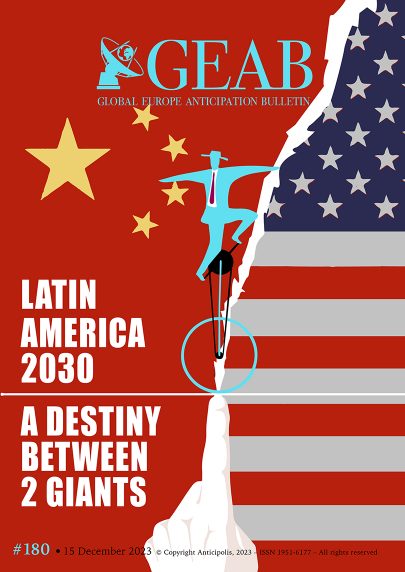GEAB 180
By January 1st, 2024, Argentina was expected to become a member of the BRICS bloc, alongside Iran, Egypt, Ethiopia, Saudi Arabia, and the United Arab Emirates[1]. However, Milei’s election as President abruptly reversed the country’s diplomatic trajectory, with a very marked pro-American shift, embodied in the desire to dollarise the economy. Such a choice implies a rejection of the BRICS[2], whose primary objective is to challenge the dominance of the U.S. dollar. While the BRICS+ are also intended to give a voice to emerging and newly-developed countries in a world that has finally become multipolar, this abortive membership embodies the shift in the epicentre of the Sino-American battle to Latin America.
The outcome is a consequence of both the enduring decline in the United States’ influence on the continent[3] and the persistent engagement of China. Having garnered support or, at the very least, secured passivity through its economic initiatives worldwide, China is now endeavoring to cultivate favour on a new continent[4].
Login

Similar to the gradual movement of continents, the reshaping of the global order is a protracted and gradual phenomenon when examined on a monthly scale. While marked by intense clashes [...]
We are witnessing an era of historical cynicism that compels us to perceive a succession of micro-conflicts, accompanied by their toll of casualties and population displacements, as endeavors aimed at [...]
Last January, in our issue GEAB 171, by way of presenting a panorama of trends and anticipations point by point as we used to do, we chose to paint a [...]
Poll: In 2024, what will be the key event in the global systemic crisis? This year, our team would like to involve you in this survey. Send us your answer [...]
Hydrogen, a short-term opportunist The world's largest deposit of white hydrogen has apparently been discovered in France, by mistake... Although we are not contradicting our recent recommendations on "new energy" [...]

Comments